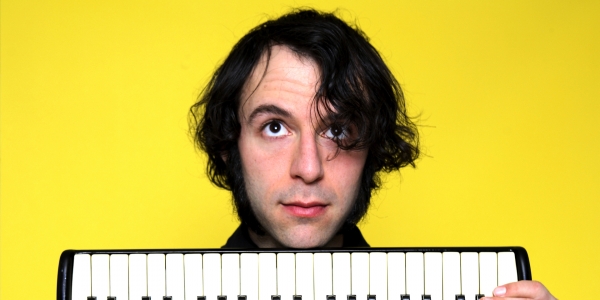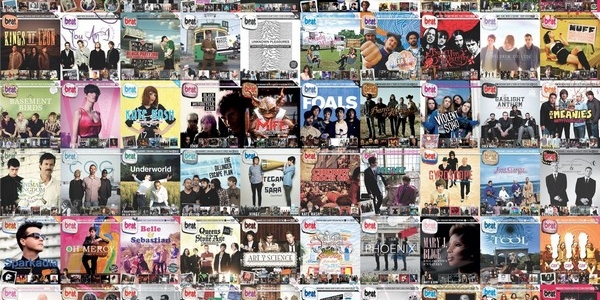It is from this sense of inventiveness (minus, one would assume, the accidental killing of a nephew) that Los Angeles-based songwriter, producer and remixer Alfred Darlington chose Daedelus as his stage name. Whether recording as a solo artist, collaborating with groups, such as Adventure Time and The Long Lost, or DJing on the internet radio station Dublab, Darlington has been incredibly busy for the last decade. Speaking by phone from his hometown of Santa Monica, a self-deprecating sense of humour and a deep and abiding passion for what he does comes through loud and clear during the course of our conversation.
I first ask him how, as a classically trained musician proficient in the clarinet and the double bass, he became involved in the world of electronic music. “It’s one of those things,” he begins, “where in the ’80s and ’90s everything was infused with electronics. I was completely aware that that was an existing thing, but I had no idea how it was achieved.”
“Playing classical instruments and jazz music – I was aware of chord changes and notes on paper, but the strange bleeps and bloops of the 808 and the Juno synthesizer and all that was just a world away from my existence. But I think we’re all drawn to the unknown and mysterious; and I certainly was. When I really began to ‘look’ through my own ears and I started to pick up music that wasn’t my sister’s or my parents’; when I started to go to record stores on my own, I found myself gravitating to the electronic music section. I was gravitating towards what would now be determined as rave music, and that genre now shows up a lot in my compositions. As a young listener, I wanted my music to flip on itself and for the rhythms to change and bend…to be surprised by the sound. And of course, electronic music has oodles of that!”
One aspect of Daedelus’s music I truly enjoy is that it simply defies classification. Deftly moving back and forth between hip hop, acid jazz, soul, stark minimalism and flat-out house bangers, Daedelus’s 12 records (the most recent of which, Bespoke, was released earlier this year) are a veritable feast of genre-bending electronica at its most variegated. When I ask Darlington about his method of composition, he becomes thoughtful. “I think mood’s a part of it,” he admits, “and whatever’s sitting in front of me, be it an instrument or something like that. Sometimes it’s a sticky key on a piano! Either you want to play that sticky key and unstick it, or you avoid it; and that kind of musical choice, that’s what happens in the studio – I have plenty of broken gear, so that makes a lot of choices for me!”
“But also, I think living in a day and age where people have pretty wide interests in terms of sound they’ve been exposed to – the kind of wealth the internet provides, which is everything and every genre ever – people can have a pretty deep knowledge of [music]. So there’s no such thing as ‘rare groove’ anymore, for instance.”
“Somebody samples off an obscure product that maybe was just a private press recording from whatever year…and a few days after the record’s released, probably everybody’s going to have a copy of the original mp3. I try not to embody a whole style or sound. I just think genre’s kind of an antiquated idea – even though it’s important. People want classification; they want a clarification of what they’re listening to. But as an artist, sometimes it’s something that gets in the way at times.”
But how do the songs themselves come together? “It varies on the record,” he says. “Like I did a record [in 2006] called Denies The Day’s Demise, and it was about samba music; it was all about Brazilian and Latin percussion and instruments. So it made sense to start with the percussion, the beat. But with a lot of other records it’s not so clear what to start with.”
“If an idea comes to you quickly, and you express it in a way that’s still vital, it’s almost like the digital technology nowadays affords the possibility [of being able to] mash the sound so much that you can kill it, and remove the life from it. Where the sound’s situated from it can be a synthesiser or an organic instrument, but if you mash it around too much, it can destroy that thing that originally attracted you towards it. I try to keep a pretty quick process that doesn’t necessarily get too digital or too flat.” He pauses for a moment, and laughs. “I try to leave a lot of life in a sample. I don’t always do too good a job of it, but I try!”
BY THOMAS BAILEY

